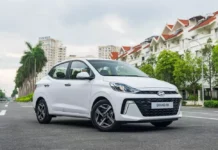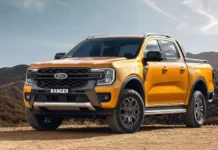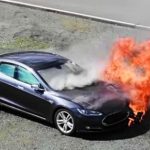In the meantime, the future of Apple’s electric car model iCar remains uncertain. Another major tech company in China, Xiaomi, is preparing to launch and deliver its first electric car, the Xiaomi SU7. This electric car model comes from Xiaomi’s newly established car subsidiary, and it could potentially compete with Tesla’s Model 3.
Formerly known as the MS11, this compact electric car will be produced at the BAIC factory, which is a well-known car manufacturer and currently a joint venture to assemble Mercedes-Benz.
Similar to all cars sold in the Chinese market, the SU7 has been unveiled with multiple images and technical specifications on the website of China’s Ministry of Industry and Information Technology (MIIT).
Prior to this, leaked images of the SU7 revealed a front end that drew similarities to McLaren, while the rear of the car featured Porsche-style closing/opening wings. The door handle is elegantly concealed within the body to optimize aerodynamics.
Although Xiaomi has not disclosed all the details about their first EV, the dimensions indicate that it is comparable to the Hyundai Ioniq 5. The wheelbase of the car measures 3,000 mm in length, larger than the Tesla Model 3’s 2,875 mm wheelbase parameter. Users can choose between 19 or 20-inch alloy wheels. The radar system installed on the windshield implies that the car is equipped with driver-assistance technology.
The SU7 model will be available in three different versions: SU7, SU7 Pro, and SU7 Max, all of which will be on sale later this year. The powertrain consists of a 295-horsepower electric motor for the rear-wheel-drive variant, offering a top speed of 210 km/h. The AWD variant, on the other hand, provides more power with 664 horsepower from two electric motors, allowing for a maximum speed of up to 265 km/h.

Given its origins as a smartphone brand, the Xiaomi SU7 will feature a compatible connection system between the phone and the car. Additionally, Car News China reports that this EV model will utilize Xiaomi’s HyperOS system, a customized operating system designed to power both smartphones and smart cars.
In March 2021, Xiaomi announced a significant investment of 10 billion Chinese Yuan (approximately 1.4 billion USD) in an electric car production project. The first Xiaomi SU7 cars are expected to be delivered to customers starting in February 2024.
(According to Carscoops)
Ti?n Dung (Forum.autodaily.vn)


































![[CAR REVIEW] The Newly Launched BMW iX3 in Vietnam: Compact, Practical, and Expensive](https://vnauto.net/wp-content/uploads/2023/10/xehay-bmwix3-01082023-9-150x150.jpg)
![[QUICK REVIEW] VinFast VF5: Extremely Affordable, Spacious, and Well-Equipped](https://vnauto.net/wp-content/uploads/2023/10/Xehay_VF5plus_21042318-150x150.jpg)
![[CAR REVIEW] User Reviews of VinFast VF 9: Stylish, Luxurious, Smooth Ride, and Perfect for Families](https://vnauto.net/wp-content/uploads/2023/10/xehay-vinfastvf9-09092023-12-150x150.jpg)
![[CAR REVIEW] Wuling Mini EV: Affordable, Compact, Convenient, but…](https://vnauto.net/wp-content/uploads/2023/10/xehay-wulingev-16062023-8-150x150.jpg)












